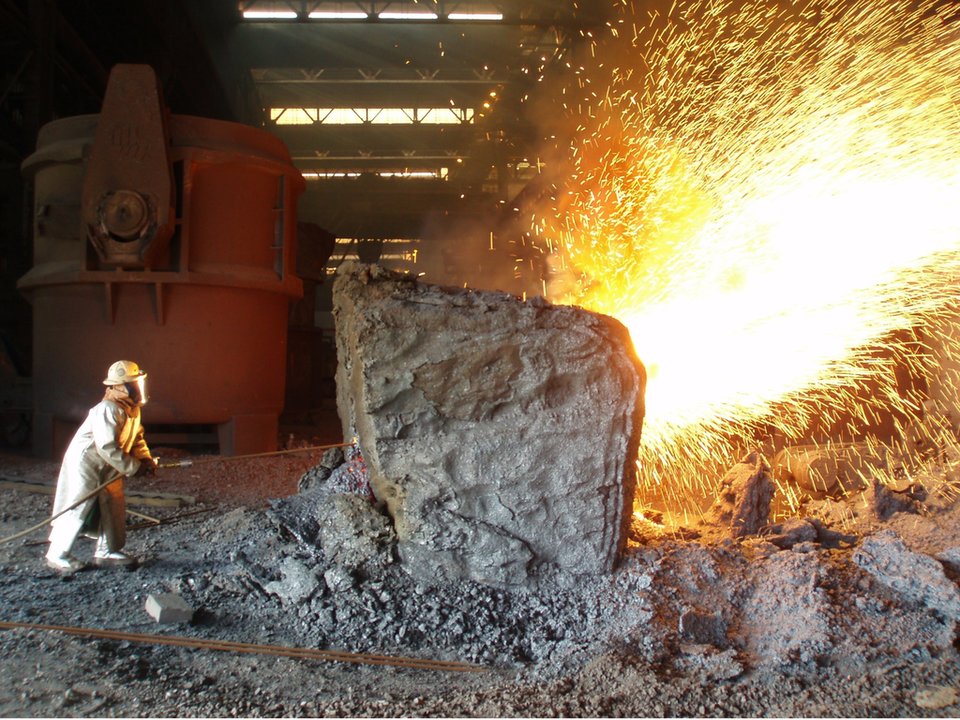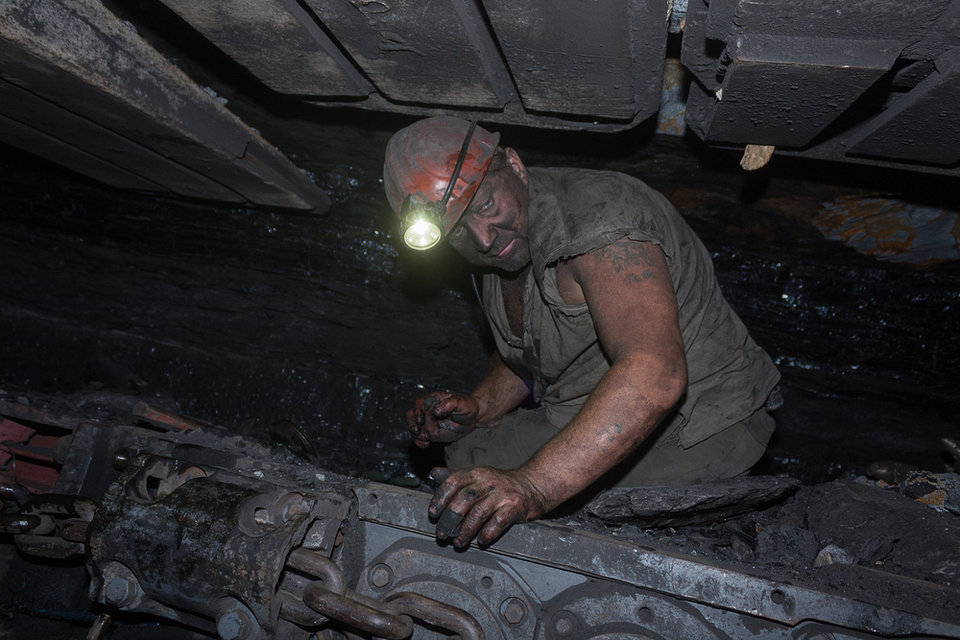A reliable partner for safe oxygen lancing – worldwide
The steel industry is changing. Global competition enforces to deliver tangible contributions for cost reductions, without compromising with core deliverables as performance, quality and safety. Operating an oxygen lance belongs to the most dangerous tasks in modern steel making. BEDA provides the safest and most performant oxygen lancing tools available.
Scroll down to read the article
Oxygen fires and explosions occur, also in modern and well-managed plants. Therefore, it is indispensable to protect operators by professional equipment, technical consulting and qualified training.
To deliver the best possible oxygen safety products will remain BEDA´s key commitment to its customers, but BEDA has more to provide:
Specific product designs deliver significant contributions to reduce maintenance efforts and operating costs.
Specific integrated solution packages go far beyond hardware delivery, including staff training, standardization and technical documentation which can be implemented into plant Health&Safety management systems.
Acoording to its commitment, BEDA has been making its customer´s oxygen lancing safe and cost-efficient, for nearly 60 years now, all over the world.

Ukraine’s miners have protested for years against lack of funds for investment. Credit: LongJon/Shutterstock.
What makes BEDA to be the most competent supplier?
- Highest Quality in every detail ensures maximum safety and product life time. Quality that pays off.
- No compromises at materials and components. Whatever is used in BEDA products is of best quality and definitely oxygenproven.
- Decades of experience go together with modern design tool, resulting in products with optimum flow characteristics, minimum weight and the worldwide acknowledged robustness, the brand name BEDA stands for.
- BEDA products undergo tough tests by worldwide respected, independent test institutes such as the BAM (Europe), WHA (USA) and TSSA (Canada).
- BEDA is a very flexible supplier, delivering specific solutions for individual requirements.
- Customers in all over the world rely on the quality of BEDA´s products, on its dedicated customer service and its competent consultancy.
Throughout Ukraine, the mining industry’s general debt is estimated to be $18.7m
During the first ten months of 2017, Ukraine spent $2.15bn on coal imports
Separatist complications
The wage arrears and other concerns have built up in the coal mining industry in Ukraine for a number of reasons. Allegations of corruption have been made by many, including Oleksandr Kharchenko, managing director at Energy Industry Research Center in Kiev. He claimed that the money from state-run mines has been redirected, which has been a key cause of the wage arrears.
Others claim that the deep nature of Ukrainian coal operations and low productivity of many mines has made them unprofitable; they have therefore been heavily dependent on government subsidies for years. The level of these subsidies has changed with each government, without great reform to the industry.
Communication failures between the MECI and state-run mining companies and unions have allowed the situation to reach the critical point it is at today.
“We urge the Ukrainian Government to re-launch social dialogue with the unions, and take effective measures to solve the problems affecting the coal industry,” said IndustriALL Global Union general secretary Valter Sanches in a letter to the Prime Minister of Ukraine. “We stand in solidarity with our affiliated trade unions and our fellow miners in the Ukraine and support their legitimate demands and necessary legal steps required to protect the rights of workers.”
Political and military upheaval has complicated the situation. In April 2014, pro-Russian separatists formed a militia that took Donetsk and Luhansk out of the Ukrainian Government’s control. In July 2017, they announced that they had founded a new country called Malorossiya, or Little Russia in English.
The four Selidivvugillya mines that have been striking this year lie very close to the eastern border with the People’s Republic of Donetsk, increasing the tension in the region. Many miners are concerned that due to unpaid wages they could not afford to move in an emergency, putting them and their families at risk.
Furthermore, 85 coal mines lie inside this disputed region. The resource-rich area accounted for 57% of production up until 2014, when reports stopped. Only 35 state-run mines are outside of this region, which must continue producing coal for domestic use. It is currently illegal to purchase coal from the separatist regions; however, there are reports that it is being sold to Russian, Polish and other European companies.
Since 2014, Ukraine has engaged in numerous coal import deals to make up for the lost supply created by the loss of territory. The majority of coal has been imported from Russia, which provided 55.7% - $1.2bn worth - between January and October 2017. The country has also begun importing American coal for the first time in its history, in particular anthracite, the price of which America has tripled since 2016. Overall, during the first ten months of 2017, Ukraine spent $2.15bn on coal imports.
With the significant challenges caused by the separatist movements drawing focus, many miners feel ignored by the government. As government officials in Kiev try to limit illegally sold coal and avoid an energy crisis, communication has broken down with the remaining coal miners.
With the significant challenges caused by the separatist movements drawing focus, many miners feel ignored by the government. As government officials in Kiev try to limit illegally sold coal and avoid an energy crisis, communication has broken down with the remaining coal miners.
More than half of the country’s coal mines are managed by pro-Russian separatist militia. Credit: DmyTo/Shutterstock.

A time for communication
Ukrainian state mines currently employ 51,000 workers, and are the main source of employment in regions such as the Donetsk coal basin. Mine closures over the last few years have already decimated towns and the government does not desire to close more but there is little clarity on how to progress in a profitable and sustainable way.
“The development of state-owned mines is possible in a stable environment, but wages must be paid on time,” said Trade Union of Coal Industry Workers of Ukraine deputy chair Valery Mamchenko. “Last year, UAH2.8bn ($100m) was allocated for the development of the coal industry, including the wage fund, but this year the amount is less than half.”
Without communication with unions and workers, many fear that Ukraine’s coal mining industry will remain stuck in its cycle of non-payment, protests and emergency measures. “It is essential to pay wage arrears in full; stamp out corruption in the industry; appoint managers of enterprises and mines on merit alone; and establish an effective social dialogue with trade unions,” said the Independent Trade Union of Miners of Ukraine president Mychailo Volynets.
The next few years will determine the future of Ukraine’s mining industry; now is the time for the government to focus on and support coal communities. Whether or not mining is to continue to play an important part in Ukraine’s economy and the lives of its citizens, or if it is time for the subsidies to be reduced and new energy industries to be grown, a plan must be made.
Ukrainian state mines currently employ 51,000 workers, and are the main source of employment in regions such as the Donetsk coal basin. Mine closures over the last few years have already decimated towns and the government does not desire to close more but there is little clarity on how to progress in a profitable and sustainable way.
“The development of state-owned mines is possible in a stable environment, but wages must be paid on time,” said Trade Union of Coal Industry Workers of Ukraine deputy chair Valery Mamchenko. “Last year, UAH2.8bn ($100m) was allocated for the development of the coal industry, including the wage fund, but this year the amount is less than half.”
Without communication with unions and workers, many fear that Ukraine’s coal mining industry will remain stuck in its cycle of non-payment, protests and emergency measures. “It is essential to pay wage arrears in full; stamp out corruption in the industry; appoint managers of enterprises and mines on merit alone; and establish an effective social dialogue with trade unions,” said the Independent Trade Union of Miners of Ukraine president Mychailo Volynets.
The next few years will determine the future of Ukraine’s mining industry; now is the time for the government to focus on and support coal communities. Whether or not mining is to continue to play an important part in Ukraine’s economy and the lives of its citizens, or if it is time for the subsidies to be reduced and new energy industries to be grown, a plan must be made.
It is essential to pay wage arrears in full [and] stamp out corruption in the industry